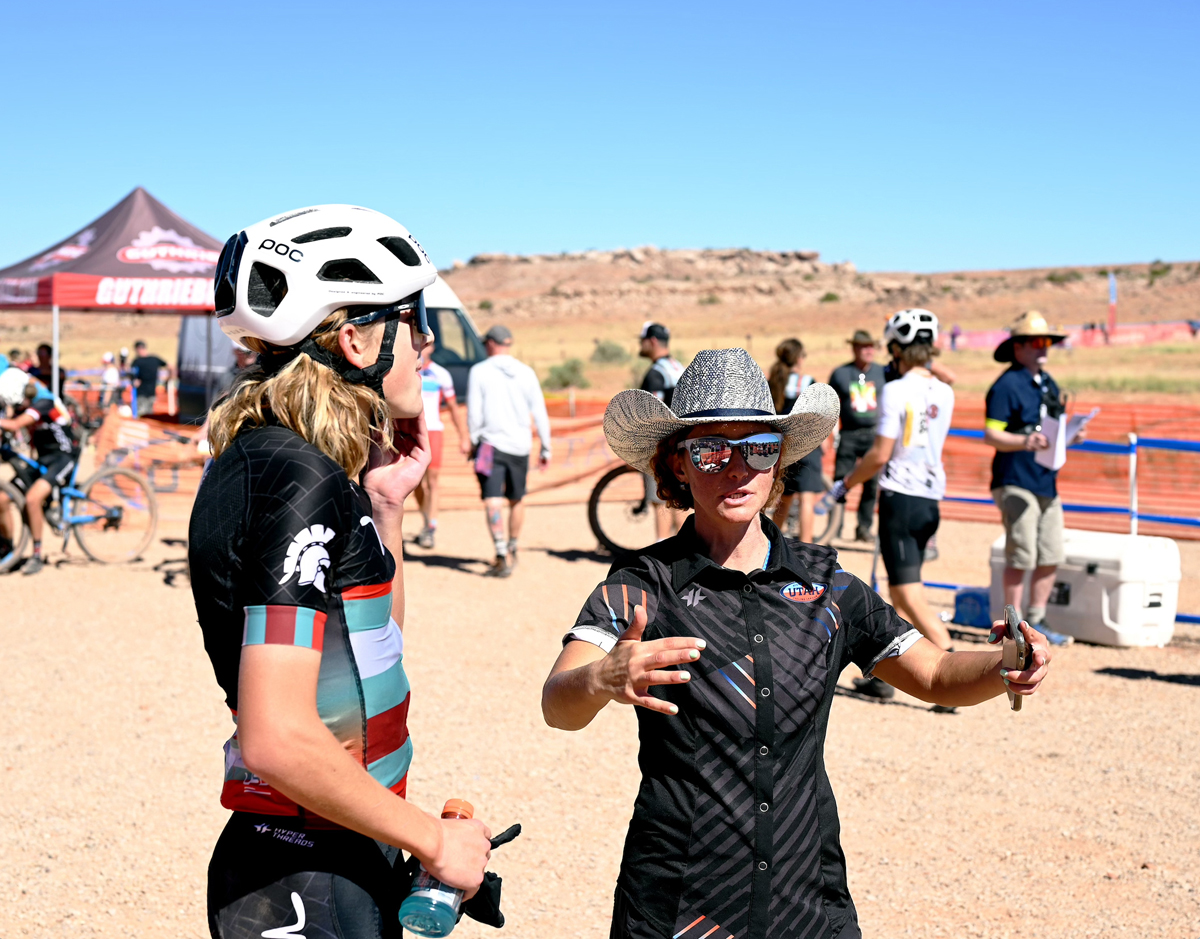By Sarah Kaufmann — When I get started coaching a new athlete, one of the things we go through at the outset is the equipment they currently have and the pieces they should have to get the most out of their coaching. As we head into spring, many athletes begin with a new coach. What do you need to get the most out of that new relationship? Let’s break it down.
Basics
The basics; bike, shoes, helmet, a few comfy kits. A saddle you are familiar with and like. An indoor trainer if you will ride indoors for poor weather. A bike computer that will sync with Ant+ or Bluetooth. (Some athletes ride with a watch, but most have more success with a handlebar mounted computer).

Watts
A power meter. Some coaches require this. Power meters allow you to get more out of your coaching, providing the ability to measure, record, and target watts. For juniors and less experienced riders, I see this as less important and there is real value in learning to listen to your body and training by Rate of Perceived Exertion (RPE) initially, so you learn to recognize the cues your body is giving you.
Bike Fit
A good bike fit by a professional fitter. If you are local to Salt Lake, I have a few bike fitters with different specialties that I recommend and trust depending on the rider and their goals. If you ride more than one bike consistently, match the fits across all your bikes to your primary race bike.
Data
If you will hire a coach, create an account in TrainingPeaks. Most coaches use TrainingPeaks and software connected to TrainingPeaks, to plan, prescribe, and review training. The bigger log of data you have at the outset, the more of a leg-up your coach will have when you get started. So, create an account and start uploading your ride data there. STRAVA does not have the same functionality for a coach so having a large log of data in STRAVA, Garmin Connect, or others will not provide your future coach with the same wealth of knowledge as TrainingPeaks data provides when you do get started.
Coach Options
Talk to multiple coaches and talk to your friends who have coaches. The athlete/coach relationship is deeply personal and will require a great deal of trust and open communication to be most effective. Trust your gut when you go through the interview process. Is this person listening to me? Does this person understand my goals? Does this person understand my limitations? Review each coach’s plans carefully and get a clear idea from them about what is and is not included in each plan.
Mindset
Be coachable. What is this intangible term that gets thrown around? I would define coachable as a humble focus and curiosity. Accept feedback. Ask questions. Your coach should provide feedback in a way that is constructive and motivating so you can receive it with an open heart and mind that allows your cycling to grow. Focus is required to do the work. Your training plan should be hard enough to challenge you without overwhelming you. It will ask you to make sacrifices in the interest of your goals. But your goals should be driving you enough that those sacrifices feel worthwhile. It is your coach’s job to determine the level of difficulty to keep you engaged, making progress, and avoiding burnout. It is your job to determine the level of sacrifice necessary to maintain that focus.
That’s pretty much the list. There are lots of other fun gadgets and there are always new bikes and upgrades to your current bike(s) and equipment. But hiring a coach to make you the best athlete you can be will undoubtedly be the most fulfilling upgrade you can make.





